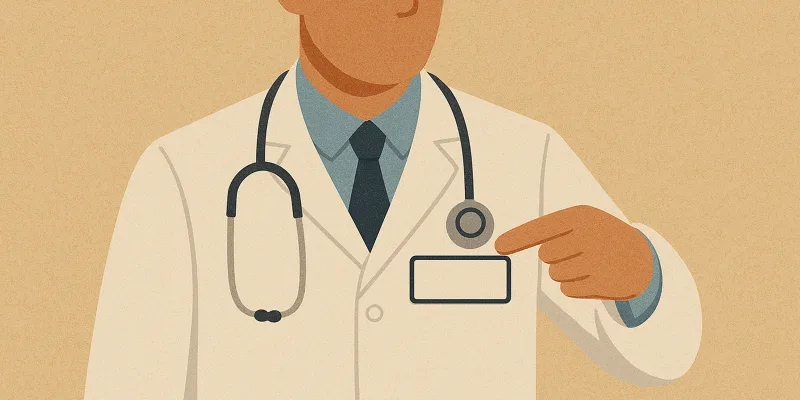
What is the secret to being a great doctor? The secret is to listen: listen to the history of the presenting symptoms, listen for a patient’s anxiety, listen to what the patient wants out of their encounter with you. As a physician, you must constantly work on your ability to listen to the patient, and then you must teach everyone around you how to listen, too.
There is nothing more important than human connection. Caring, concern, and compassion do not come from automatic messages, large, and de-personalized health systems, nor other streamlined and efficiency-generating measures. In times of illness, a medical emergency, or any situation where one’s health is concerned, the human connection and expression of compassion, can make the difference between a positive outcome and a negative one.
Your ability to positively impact patient lives will remain limited if you are the only person in your enterprise who is caring and compassionate. The most important people who must be caring and compassionate are your office staff. Your staff will be the first people to interact with a new patient. Your staff will answer the phone and hear the reason for the request for an appointment, your staff will review insurance and payment issues, your staff will be the point of contact when something is going wrong, and the patient needs help.
In fact, your staff may have more interactions with your patient that you will, yourself. The first people to touch the patient will also be technicians and other helpers (e.g., physician assistants, orderlies, etc.). Although you can’t really teach people to be caring and compassionate, educating your staff will help motivate them to join your mission to be the best at serving patients who come to your practice.
Learn to work as a team. Even if your medical institution does not require your direct involvement in the hiring and training of support staff, make it a point to get to know the staff who will be having interactions with your patients. If you expected practicing medicine to be a doctors-only activity, think again. If you don’t know much about managing personnel in your practice, learn how to be a manager.
Educate Your Staff
Most staff will come in to your practice knowing how to schedule, obtain authorizations, answer the phone, and file. But surprisingly, most staff may know very little about what you, the doctor, actually does. In a primary care office, the tasks of the physician may be more obvious. But what about the practice of an interventional radiologist? Or an ENT surgeon?
It is critical that your staff understand the conditions that you treat. Don’t hand them a textbook or email a link from WebMD; instead, teach and engage with your staff personally. Make the time to put together some brief lectures geared to the layperson that describe what it is that you do. Include basic anatomy, how common conditions present, how the treatments that you offer work, and include diagrams and photos so that your staff can understand the language of your specialty just like you do. If you do surgery or procedures, make sure that each one of your team has observed the common procedures that you do.
Understanding exactly what patients experience will help to instill a natural sense of compassion when your staff interact with the people you help. More knowledgeable staff can interact and educate patients at a higher level. Simply knowing that their interactions with patients are more impactful because of this knowledge will likely improve the overall job satisfaction working with you.
Hold Team Meetings
Because you cannot function alone, your support staff is more important than you are. Demonstrating that you respect your team enough that you hold regular meetings will improve your practice. Ask each person: what do you like about working here? How do you see your role? What are the pros and cons of the practice? What ideas do you have for us all to improve?
When this starts to be routine, you might also get some pointers on how to improve yourself. They will give you feedback that will come directly from patients themselves. For example, I learned that some of my patients expressed to my staff that I don’t spend enough time with them. Because of this, I have made it a routine habit to ask, “Does anyone have any additional questions?” before we end the visit.
Have a Team Mission Statement
The energy of knowing that you are working for a common goal is motivating. In our practice, the mission statement is to “provide an individualized, personalized, bend-over backwards positive experience for each patient encounter.” When phones are answered, when people are calling to reschedule, ask questions, renew prescriptions, any one of my staff knows to ensure that the response is consistent with this statement. Your staff will enjoy striving for a higher bar with the common goal being to serve patients in the best possible way.
The Value of Familiarity
There is nothing more comforting than calling up your doctor and having the person answering the phone know exactly who you are, your family, and what you have been through. There is nothing more reassuring to a patient than arriving for an appointment and being recognized by the front desk staff, and having confidence that all that matters is the care. By taking the time to work with your team — education, holding meetings, working together on a mission statement — your life as a doctor will improve.
Your patients will respect you more when they experience the expeditiousness, respectfulness, kindness, and courtesy of your office staff. Your staff will respect you for taking the time to bring them on board in your mission to take good care of patients.
Dr. Tara McCannel is a vitreoretinal surgeon and ocular oncologist. She likes teaching, running with other moms, and family getaways. Dr. McCannel is a 2019-2020 Doximity Fellow.







